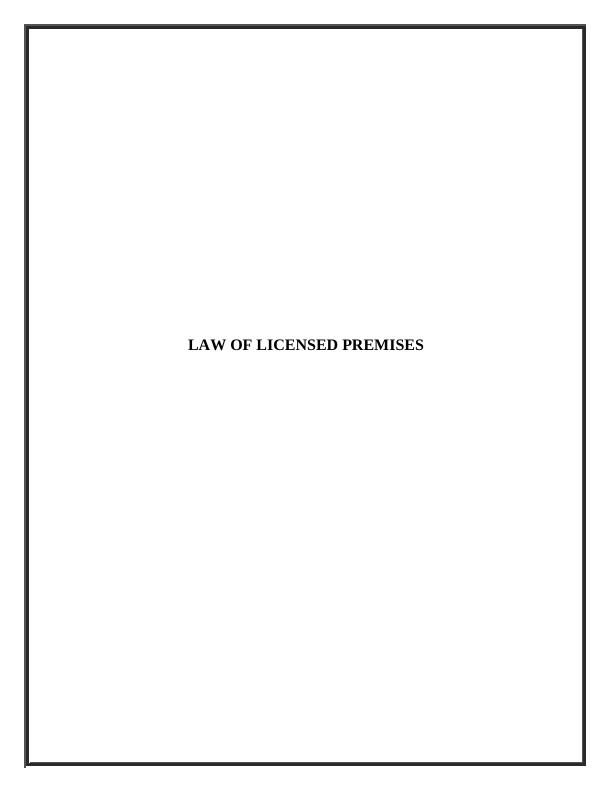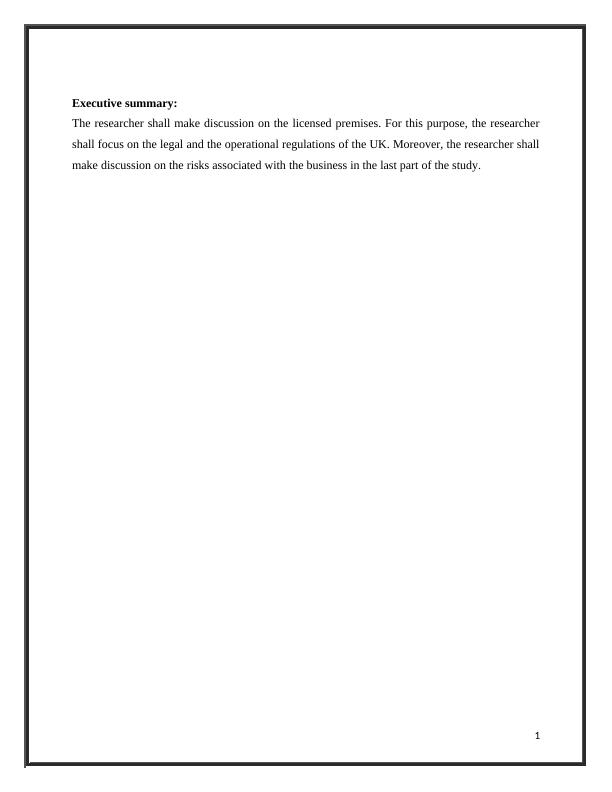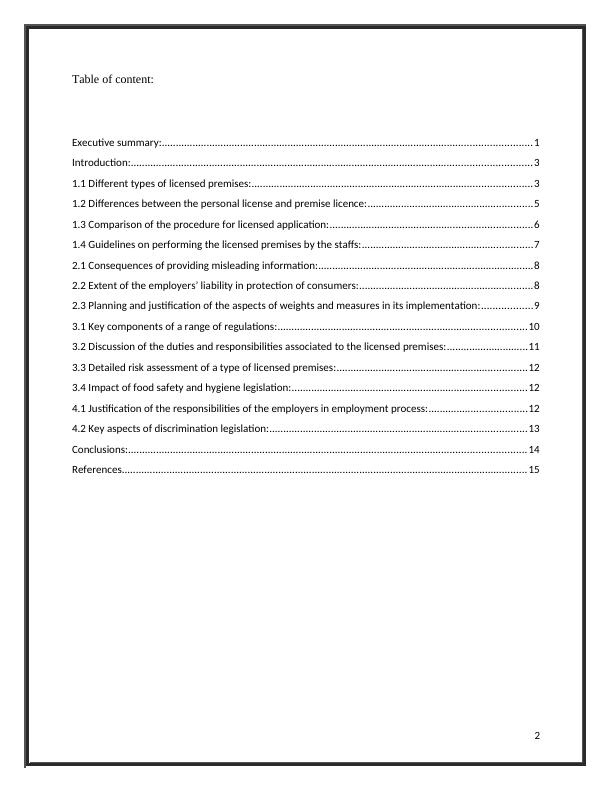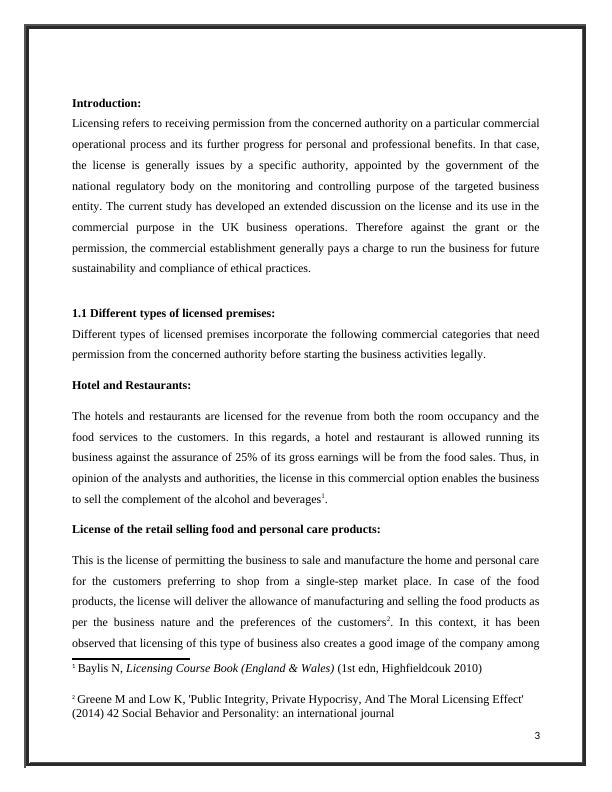Ask a question from expert
Evaluate Impact of Food Safety and Hygiene Legislation
16 Pages4515 Words320 Views
Added on 2019-12-28
Evaluate Impact of Food Safety and Hygiene Legislation
Added on 2019-12-28
BookmarkShareRelated Documents
LAW OF LICENSED PREMISES

Executive summary:The researcher shall make discussion on the licensed premises. For this purpose, the researchershall focus on the legal and the operational regulations of the UK. Moreover, the researcher shallmake discussion on the risks associated with the business in the last part of the study. 1

Table of content:Executive summary:....................................................................................................................................1Introduction:...............................................................................................................................................31.1 Different types of licensed premises:....................................................................................................31.2 Differences between the personal license and premise licence:...........................................................51.3 Comparison of the procedure for licensed application:........................................................................61.4 Guidelines on performing the licensed premises by the staffs:.............................................................72.1 Consequences of providing misleading information:.............................................................................82.2 Extent of the employers’ liability in protection of consumers:..............................................................82.3 Planning and justification of the aspects of weights and measures in its implementation:..................93.1 Key components of a range of regulations:.........................................................................................103.2 Discussion of the duties and responsibilities associated to the licensed premises:.............................113.3 Detailed risk assessment of a type of licensed premises:....................................................................123.4 Impact of food safety and hygiene legislation:....................................................................................124.1 Justification of the responsibilities of the employers in employment process:...................................124.2 Key aspects of discrimination legislation:............................................................................................13Conclusions:..............................................................................................................................................14References.................................................................................................................................................152

Introduction:Licensing refers to receiving permission from the concerned authority on a particular commercialoperational process and its further progress for personal and professional benefits. In that case,the license is generally issues by a specific authority, appointed by the government of thenational regulatory body on the monitoring and controlling purpose of the targeted businessentity. The current study has developed an extended discussion on the license and its use in thecommercial purpose in the UK business operations. Therefore against the grant or thepermission, the commercial establishment generally pays a charge to run the business for futuresustainability and compliance of ethical practices. 1.1 Different types of licensed premises:Different types of licensed premises incorporate the following commercial categories that needpermission from the concerned authority before starting the business activities legally. Hotel and Restaurants:The hotels and restaurants are licensed for the revenue from both the room occupancy and thefood services to the customers. In this regards, a hotel and restaurant is allowed running itsbusiness against the assurance of 25% of its gross earnings will be from the food sales. Thus, inopinion of the analysts and authorities, the license in this commercial option enables the businessto sell the complement of the alcohol and beverages1. License of the retail selling food and personal care products:This is the license of permitting the business to sale and manufacture the home and personal carefor the customers preferring to shop from a single-step market place. In case of the foodproducts, the license will deliver the allowance of manufacturing and selling the food products asper the business nature and the preferences of the customers2. In this context, it has beenobserved that licensing of this type of business also creates a good image of the company among1Baylis N,Licensing Course Book (England & Wales)(1st edn, Highfieldcouk 2010)2Greene M and Low K, 'Public Integrity, Private Hypocrisy, And The Moral Licensing Effect' (2014) 42 Social Behavior and Personality: an international journal3

End of preview
Want to access all the pages? Upload your documents or become a member.
Related Documents
Law for Licensed Premises Assignment (Doc)lg...
|14
|4818
|227
Law for Licensed Premiseslg...
|14
|4429
|25
The Law for Licensing Introductionlg...
|17
|4987
|249
Law for Licensed Premises Projectlg...
|17
|3948
|140
Law for Licensed Premises Assignment Solutionlg...
|18
|6086
|26
Assignment on Licensed Premiseslg...
|14
|4574
|68